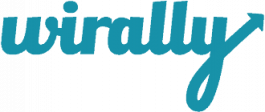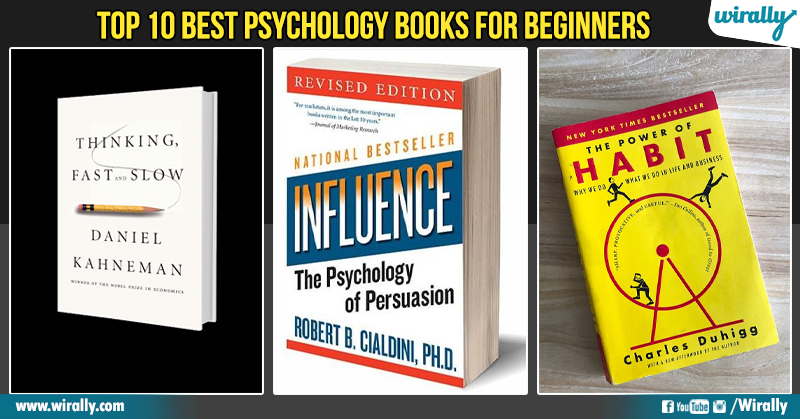TOP 10 BEST PSYCHOLOGY BOOKS FOR BEGINNERS
Are you interested in learning more about the workings of the human mind and are new to the intriguing field of psychology? Whether you’re a professional, a student, or just a passionate learner, reading books about psychology can give you insightful information. These books will pique your interest since they cover a wide range of topics, from the classic writings of Sigmund Freud and Carl Jung to more modern viewpoints on mindfulness and positive psychology. They also offer helpful tips on how to incorporate psychological insights into your everyday life. The top ten psychology books for beginners are highlighted in this article; each one provides a distinctive viewpoint on a range of psychological concepts and techniques.
1. “Thinking, Fast and Slow” by Daniel Kahneman:
The two mental systems that influence our decision-making processes—the deliberate, slower system and the intuitive, impulsive system—are examined by Nobel laureate Daniel Kahneman. Beginning with Kahneman’s own study on loss aversion, the book distinguishes between rational and non-rational incentives or triggers linked with each type of thought process, and how they complement each other. The book summarises decades of studies to argue that people place too much faith in human judgement, from framing choices to people’s tendency to substitute an easy topic for a difficult one.

2. “Influence: The Psychology of Persuasion” by Robert B. Cialdini:
Robert Cialdini examines how our decisions are influenced by the six elements of persuasion that he outlines. This book deftly straddles the psychological and commercial domains, revealing the workings of a variety of social influence strategies. Since its 1984 publication, Influence has been the standard text for marketers. It presents six fundamental ideas underlying human influence and provides numerous real-world examples to support them.
3. “Man’s Search for Meaning” by Viktor E. Frankl:
Holocaust survivor and psychiatrist Viktor Frankl provides a thought-provoking and captivating narrative of his experiences in the death camps. Through contemplating the significance of discovering purpose in life, this book encourages readers to accept their own mission and persevere through the most trying times.
In his examination of the importance of habits, Duhigg looks at the structure of a habit loop and offers doable methods for comprehending and changing our routines. By utilising the power of habit, this book gives readers the ability to take charge of their life. Any habit is controlled by a brain pattern called the habit loop. Three things make up this system: a cue, a routine, and a reward. Knowing these elements can make it easier to create healthy habits or break negative ones.
5. “Quiet: The Power of Introverts in a World That Can’t Stop Talking” by Susan Cain:
In her analysis of introverts’ potential and strengths in an extrovert-centric culture, Susan Cain highlights how cultural prejudices frequently undervalue the valuable contributions that introverts make. This thought-provoking book will provide insightful information for both introverts and extroverts.
Dan Ariely discusses the irrationality that frequently influences our decisions and questions the idea of reason. This book provides techniques to prevent common mistakes made by humans, as well as an explanation of why mistakes are made, through thought-provoking experiments and accessible examples. A “revised & expanded edition” of the book has been reprinted, and The Irrational, a television series, has been developed for the 2023 season.
7. “Mistakes Were Made (but not by me)” by Carol Tavris and Elliot Aronson:
This fascinating book delves into the phenomena of cognitive dissonance, which causes people to defend their ideas and behaviours in the face of contradicting information. The perceptive analysis of Tavris and Aronson provides helpful guidance for identifying and lessening the effects of cognitive dissonance in our daily lives.
Daniel Goleman explores the significance of emotional intelligence and its effects on our lives at work and at home. This book offers techniques for fostering empathy, emotional awareness, and clear communication. Reading this text is essential. Daniel Goldman examines the impact of both IQ and EQ—the rational and emotional—and how they affect our fate in this book. Goldman provides an explanation for why those with modest IQs perform remarkably well and others with high IQs struggle, based on his revolutionary studies in brain and behaviour. The book also covers the topic of fostering and enhancing emotional intelligence as one age.
9. “Sapiens: A Brief History of Humankind” by Yuval Noah Harari:
This book gives a comprehensive trip through human history, exploring the psychological facets that have shaped our species, without being exclusively focused on psychology. The insights that readers will acquire into the thought processes and behavioural patterns that characterise our life will be invaluable.
10. “Flow: The Psychology of Optimal Experience” by Mihaly Csikszentmihalyi:
In-depth discussion of “flow” is provided by Mihaly Csikszentmihalyi, who defines it as a state of total absorption and concentration in an enjoyable activity. This book investigates the ways in which people might use the flow state to improve their experiences and grow personally. Flow (1990) examines how strengthening our resolve and managing our attention might help us enjoy life more. This is attained by immersing ourselves in a topic or activity that, depending on how difficult it is, neither causes anxiety nor boredom.
These top 10 psychology books for beginners provide a great place to start for anyone interested in learning more about the interesting and diverse science of psychology. These books offer insightful information that might improve our lives, covering topics such as exploring the depths of emotional intelligence, human history, and cognitive biases. So pick up a book, go out on a self-exploration journey, and learn more about the workings of the human mind.

